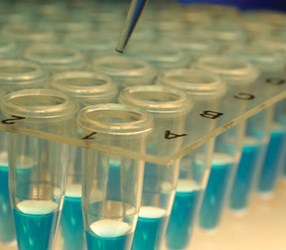Abide Therapeutics, University Of Oxford Collaborate On Serine Hydrolases
By Cyndi Root

Abide Therapeutics has partnered with the University of Oxford to research serine hydrolases, an under explored enzyme class. Abide announced the collaboration in a press release, stating that the Oxford University Hospitals NHS Trust will also participate.
Abide and Oxford will operate under a three-year agreement. The collaborators will use Oxford’s Functional Magnetic Resonance Imaging of the Brain (FMRIB) and Abide’s chemoproteomics platform to study monoacylglycerol lipase (MGLL) inhibitors. Initially, scientists will study MGLL and its ability to alter the endocannabinoid system in the human brain with the hope of proving the biological concept in humans. They also hope to discover novel serine hydrolase targets. Sir John I. Bell, FRS, FMedSci, also commented, “This collaboration with Abide is part of our commitment to translate research discoveries into the clinic to develop new medicines to improve survival and quality of life for patients around the world.” Abide intends to provide support for three Phase 1b studies and other development efforts.
Serine Hydrolases
Serine hydrolases are a large family of validated targets, but they are not as fully explored as other drug targets. The enzymes are active in a large variety of physiological processes and play a key role in CNS signaling, metabolism, and inflammation, as well as the life cycle of viruses and pathogens. Targeting the serine hydrolases could lead to multiple new treatment options for various illnesses. Abide’s proprietary chemoproteomics platform is a method to identify and validate targets and includes a small library of molecules that target the serine hydrolases’ catalytic site.
About Abide Therapeutics
Abide Therapeutics was founded by Professors Dale Boger and Ben Cravatt from the Scripps Research Institute. In February 2014, Abide partnered with Celgene on new drugs for inflammation and immunology. Celgene made an upfront payment for Abide’s technology and expertise, took a small equity stake, and acquired an exclusive option to buy Abide. The deal includes additional payments related to Celgene’s option to license worldwide rights on the first two products that reach the clinical stage and progress into regulatory filings.
